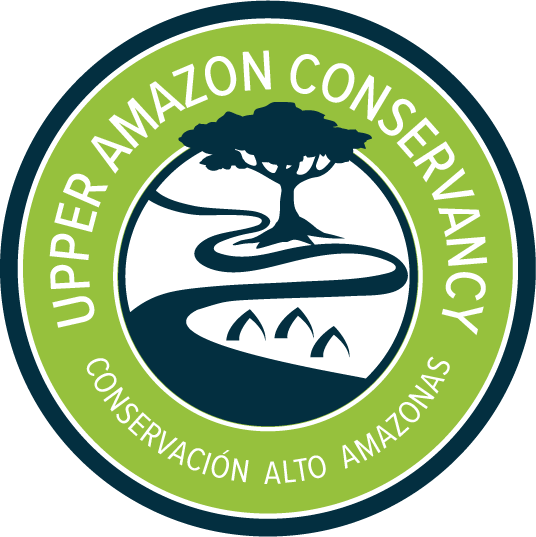Transboundary Commission Urges Ucayali Government to Act Against Illegal Highway
From October 4 to 8, 2024, Indigenous organizations from Peru and Brazil convened in the city of Pucallpa to denounce the Peruvian government's inaction against the illegal construction of the UC-105 highway. The improvement of these old, overgrown logging roads poses a grave threat to the Indigenous territories around the headwaters of the Yurua and Jurua rivers, critical for biodiversity conservation and climate change mitigation. The communities called for urgent measures to halt continued construction on the road, which infringes on their rights and endangers the natural resources on which they depend on.
Members of the Jurua - Yurua - Alto Tamaya Transboundary Commission present a diagnosis of the transboundary region, including threats from illegal roads, to the Governor of Ucayali, Manuel Gambini, during the Governors' Climate and Forests Task Force (GCFTF) Annual Meeting in Pucallpa.
The events began on October 4 with the formal introduction of the Jurua / Yurua / Alto Tamaya Transboundary Commission to regional and national authorities, including the Ucayali Regional Government. Led by the four Indigenous associations—ORAU, ACONADIYSH, OPIRJ, and APIWTXA—leaders highlighted the dangers that the illegal UC-105 highway poses to their territories and the region’s biodiversity. They also shared specific measures that local communities are implementing to confront these challenges.
Alfonso Rengifo, representative of ACONADIYSH, emphasized the relevance of this meeting: 'This gathering is fundamental for us, as we present our concerns to the relevant authorities who must respect the rights of Indigenous peoples. We understand the reality of our forests and territories. We defend them because they are essential for our survival and the well-being of future generations.'
From October 5 to 6, the Seventh Transboundary Commission Meeting was held, where the lack of response from the Peruvian government regarding the ongoing construction of the illegal highway was once again raised. Indigenous representatives discussed the environmental impact of this construction on the headwaters of the rivers, areas known for their rich biodiversity. APIWTXA President Wewito Piyanko stated, 'We are not opposed to highways, but the communities must be prepared for such development. The government should support us to ensure that necessary precautions are taken, avoiding conflicts and ensuring real benefits for the communities.'
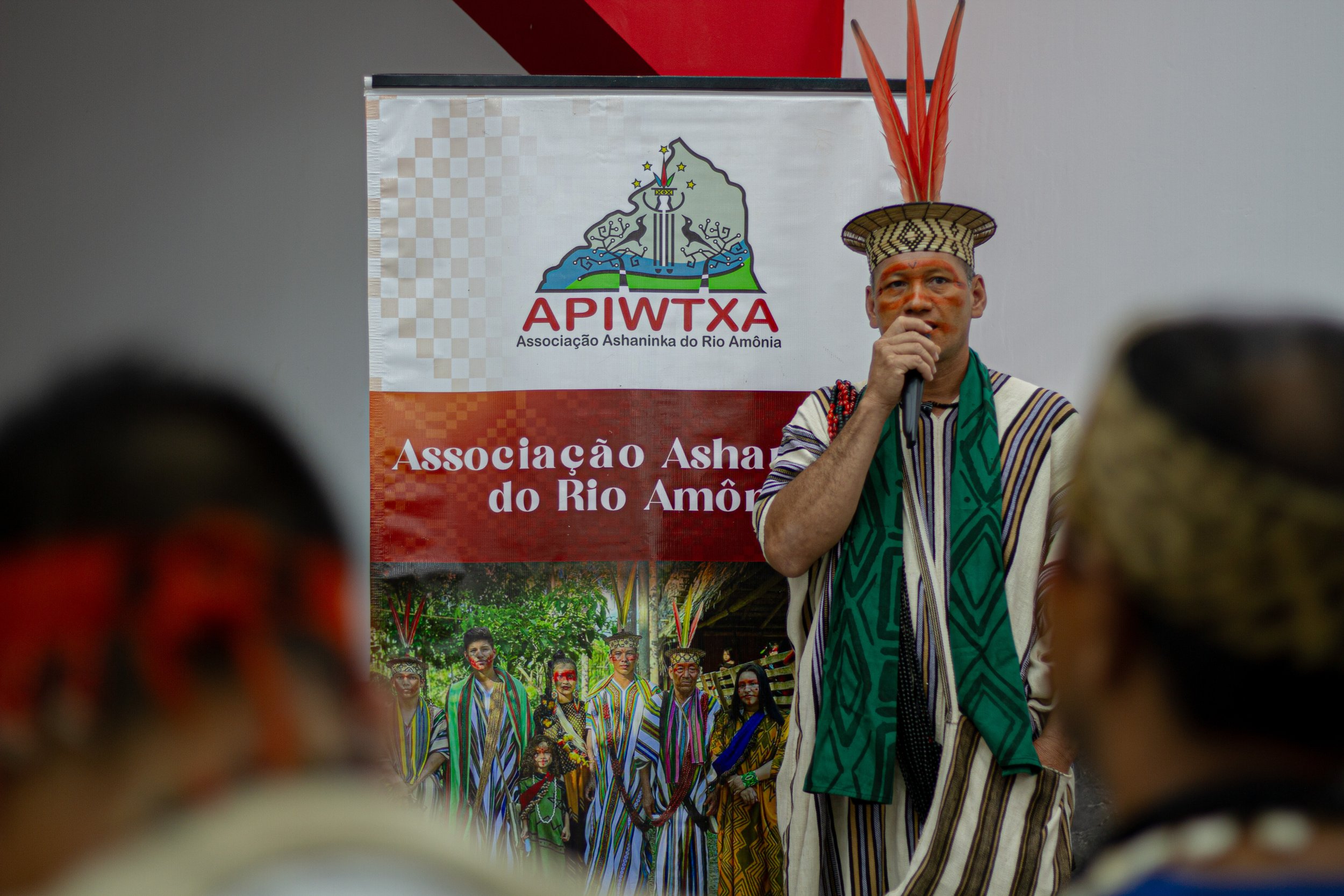
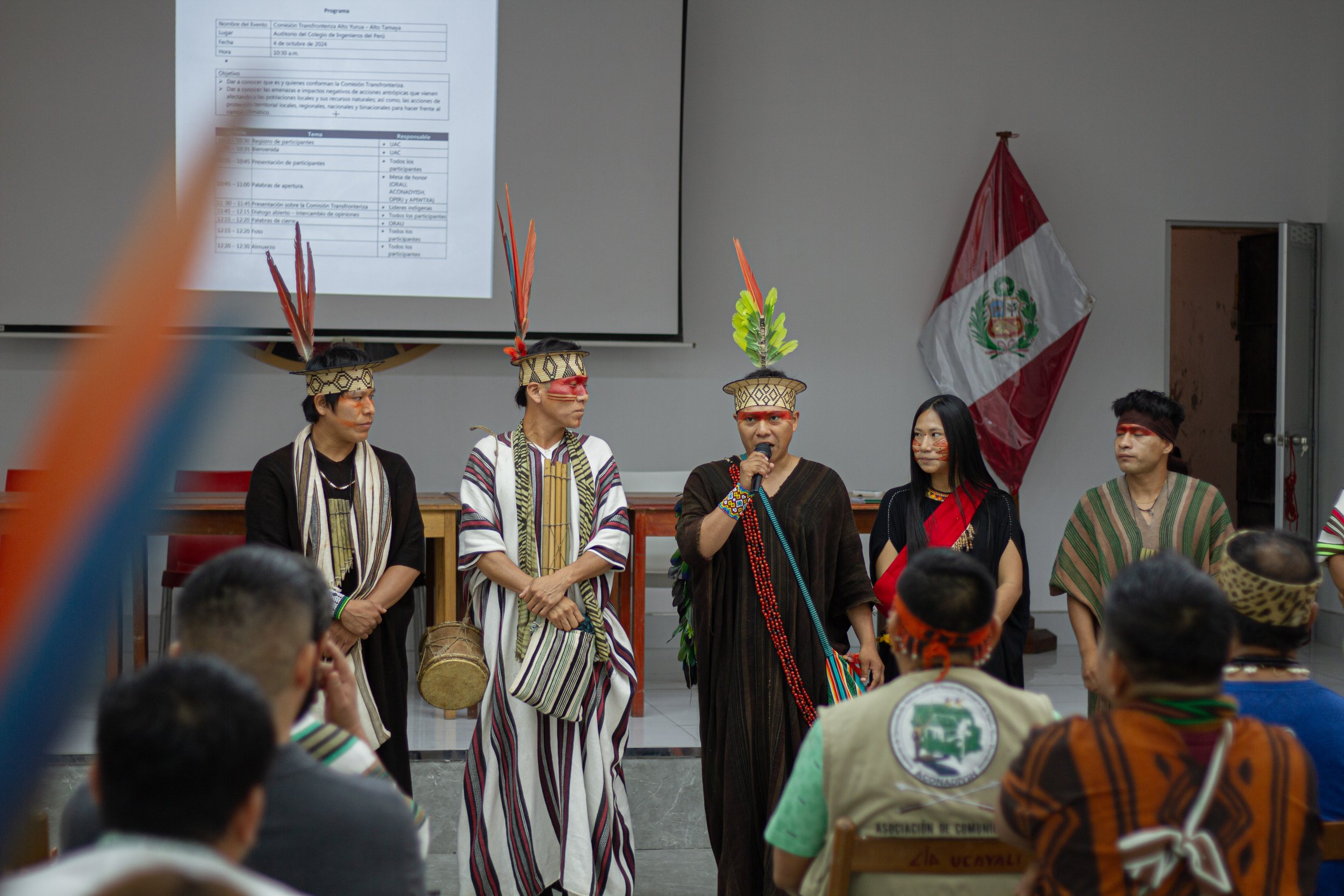
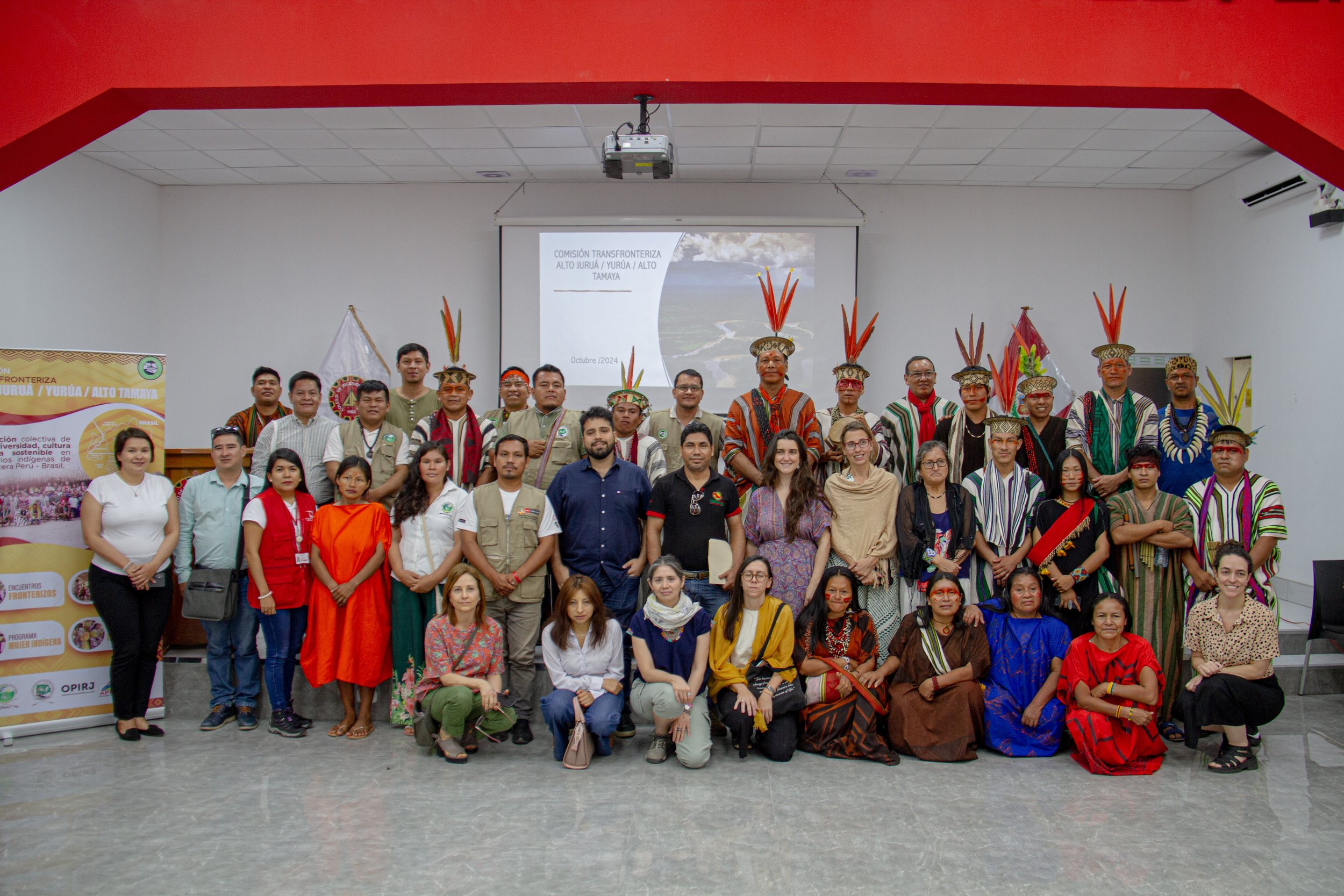
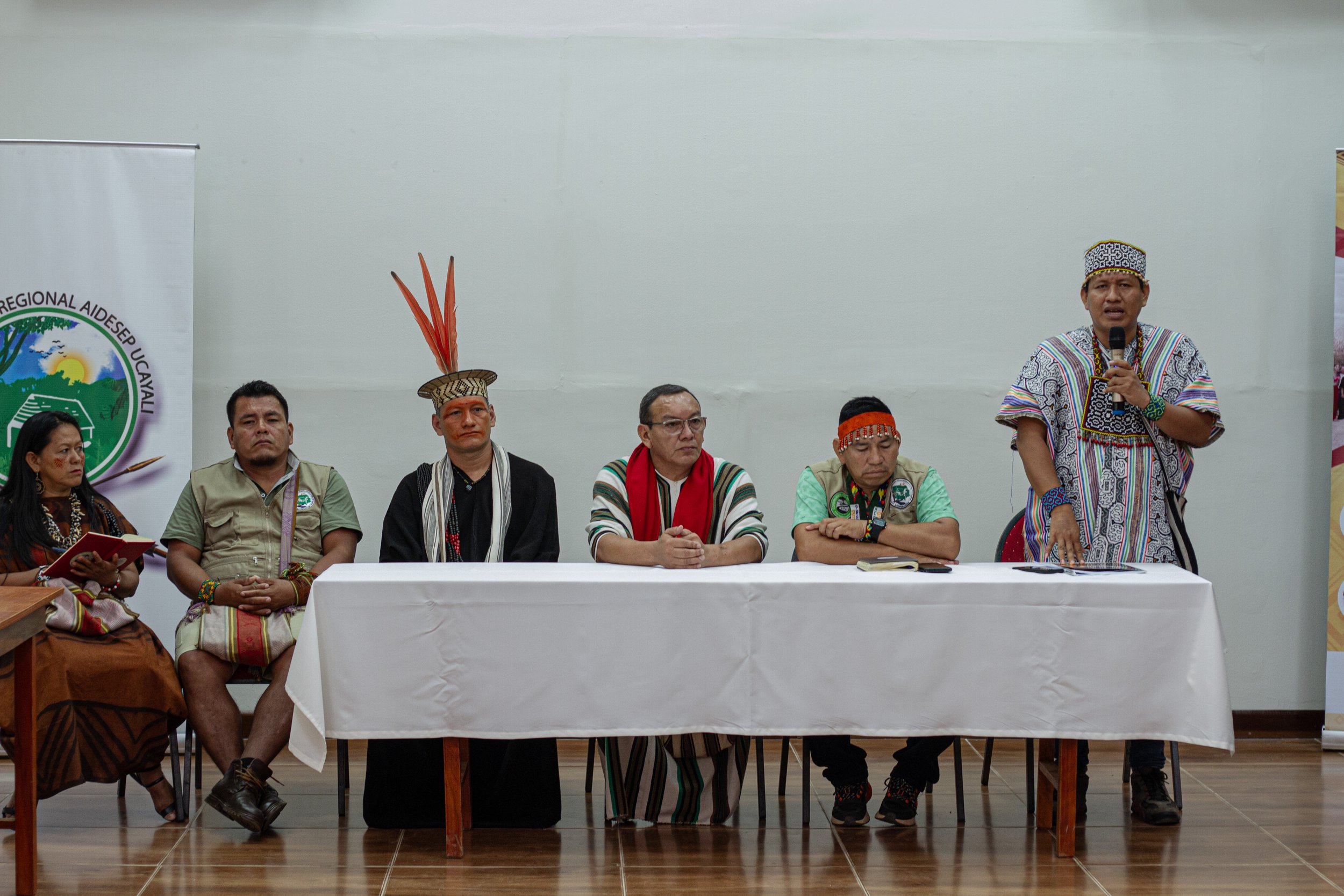
The meeting also saw the participation of legal experts and various organizations who analyzed strategies to halt the highway's construction. This included a writ of protection filed by the Institute of Legal Defense (IDL), with technical and logistical support from UAC.
Jamer Lopez, president of the Regional Organization Aidesep Ucayali (ORAU), highlighted the significant progress made at the 7th Transboundary Commission Meeting: 'I believe that this session has shown important advancements in recognizing our demands. We are concluding with a declaration in which we demand that decision-makers listen to our voices. We have also proposed sustainable initiatives for the development of our communities.'
On October 8, during the Annual Meeting of the Governors' Climate and Forests Task Force (GCFTF), ORAU and a delegation of Indigenous leaders presented an assessment of the border communities to the Governor of Ucayali, Manuel Gambini, calling for urgent action to address their needs. Following this presentation, the Indigenous organizations reiterated the critical need to protect their territories in light of the lack of state action.
At the close of these events, the organizations issued a joint declaration, criticizing the lack of state intervention and calling on civil society and international organizations to unite in defending their lands. Lopez, from ORAU, underscored the importance of collective efforts: “This Seventh Transboundary Commission Meeting demonstrates the strength of indigenous peoples along the border. We aim to make visible the need for ongoing respect for the sanctity of our forests and resources, not just during specific events but consistently.”
